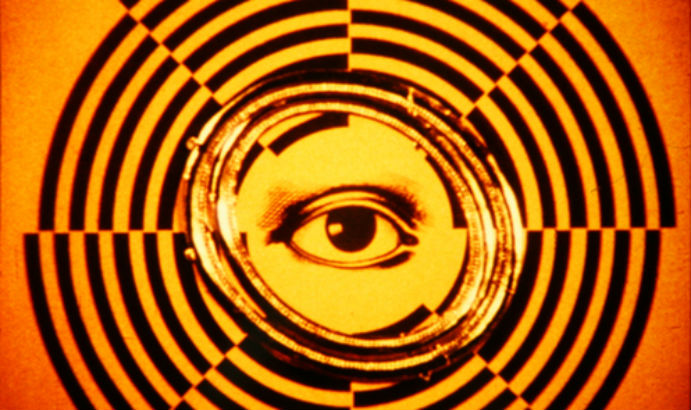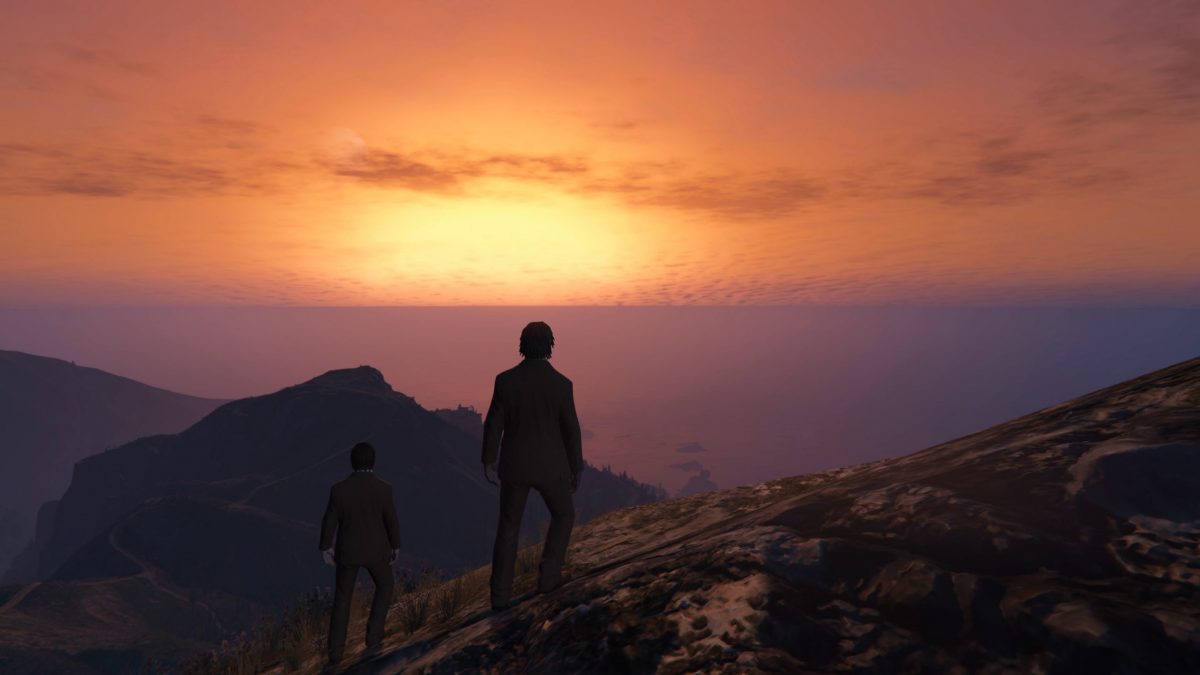Ahead of Aya Films' Dystopian Dreams event, writer Katie Goh reflects on ways to stay curious in our modern world.
How do we stay curious in 2022? Is this even a possible act, at a time when every answer to every question is a search engine result away. A pandemic has isolated us in physical, mental and social ways, and the internet, globalisation, and capitalism are causing our world to continually shrink. Could genuine curiosity be a relic of the past?
While current life might feel dizzyingly opaque, new perspectives, images, and experiences can (re)open our mind’s eye to the world around us. Film has always been a means to do just this, to connect us to each other through the magic of a bright screen and dark room. The cinematic works at Aya Film’s Dystopian Dreams event will immerse audiences in three thematic strands that have recently prompted societal, political and environmental curiosity, fear, and suspicion: Spiritualism, Nuclearism and Futurism. From the recent past to the ever close future, these radical, political, and feminist works advocate for an enagagement to the world around us right now, an engagement that remains always curious.
Spiritualism
A pioneering figure of the New York avant-garde film scene of the 1960s, director Storm De Hirsch builds a textured, kaleidoscopic experience in her short film Peyote Queen (1967). Etching directly onto 16mm, De Hirsch blurs the internal and external effects of psychedelics, playfully opening up the viewer’s eyes and mind to abstract imagery and forms. As colourful shapes flash across the screen and a drum is hit to a sensual beat, Peyote Queen presents a world without figures to grasp onto, where the audience and the filmmaker work in tandem to create the film’s ideas. Where can our imagination go with sensual freedom?

Alongside Peyote Queen, artist Meryem Lahlou’s recent work, Bare Bones (2020) is presented. As eerie, animated figures crawl, dance, and glide their way through strange, desolate landscapes, Lahlou allows dystopian and utopian imagery to play off each other and collaborate together. Spiritualism is a bodily experience in Lahlou’s film as the film ponders: if we remove the clutter of our lives, what bare bones of our spiritual selves are revealed as we move through the physical and the spiritual world?
Nuclearism
In September 1981, 36 women chained themselves to a fence in protest against nuclear weapons in Berkshire, England. Your Greenham (2007), directed by Beeban Kidron and commissioned by the Guardian, collates and preserves this country’s recent anti-nuclear, feminist history, pulled out of and spun from archive footage. Recent interviews with some of the women who were there, peacefully protesting at Greenham, brings these historical events sharply into the current moment; as protest continues to be demonised in our most recent hostile environment.
Across the pond from the Greenham Common Women's Peace Camp, Canadian filmmaker Sandra Lahire documents the history of uranium mining in 1980s Canada. Her short film Uranium Hex (1987) captures women at work in the mines, as well as the devastating side effects and legacies of uranium poisoning. Metallic clashes and industrial groans soundtrack the film as Lahire exposes 20th century fears of chemical invasion, leaking bodies and the toil of labour on the body – themes which have chilling relevance in 2022, a time when fears of strongmen with nuclear weapons still frequent news headlines.
Futurism
What does the future look like in a time populated by crises and disasters? Two films playfully dissect our contemporary moment by looking far ahead into the near future. In Finding Fanon Part Two (2015), artists Larry Achiampong and David Blandy take inspiration from the lost works of Frantz Fanon, a 20th century pioneer of post-colonialism and Marxist studies. Dropped into the virtual gaming world of Grand Theft Auto V, Finding Fanon Part Two examines the politics behind the urge to decolonise, the psychology of neocolonialism, and the legacies of racism all within a disembodied, even “post-body”, videoscape.
Meanwhile, They Charge for the Sun (2016) dramatses a bleak future in which people live nocturnally to avoid the sun’s harmful rays. Fusing science fiction and social commentary, director Terence Nance’s characters expose the secrets of their world in which those who wish to see the sun are forced to pay in time. While They Charge for the Sun imagines one potential future of the climate crisis and those who will suffer most for it, the short film also perfectly encapsulates how we’re living right now, in a world in which natural resources are capital to be gained and taken.
Each of these cinematic dystopian dreams probe with both furious and hopeful curiosity at ideas of Spiritualism, Nuclearism and Futurism that are once more back in vogue. From feminist protests of the past, to stories of how we’re living within and without ecology in the future, each of these works demands our full attention. Screening alongside performances, food, and critical studies, Aya Films’ Dystopian Dreams takes its audience on an immersive journey, one that refuses easy answers and instead encourages playful, thoughtful, and embodied immersion down the rabbit hole of cinema.
Aya Films' Dystopian Dreams takes place on Sunday 19 June. Find out more here.


